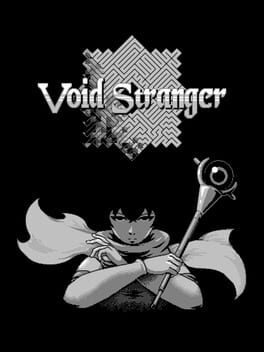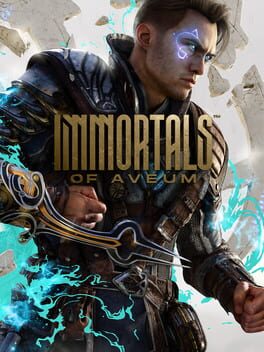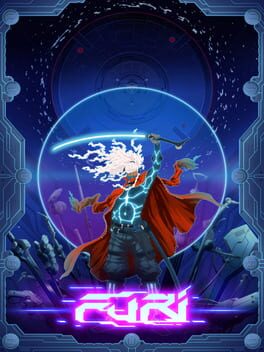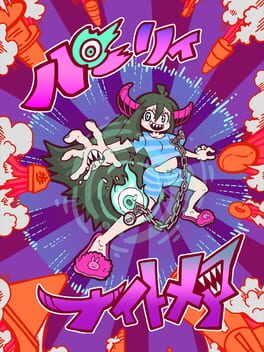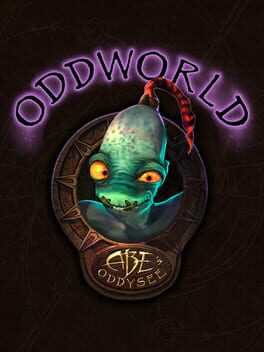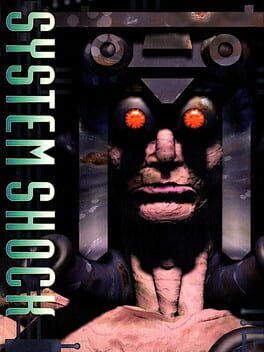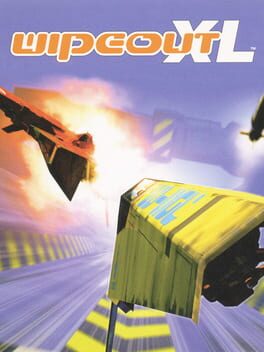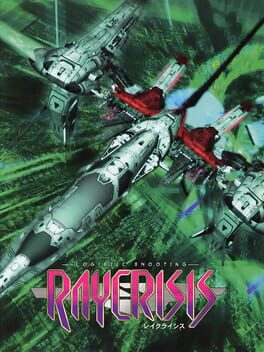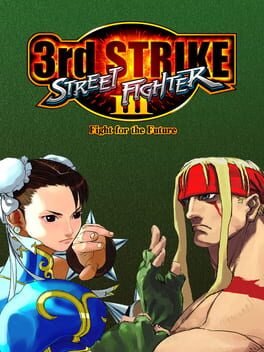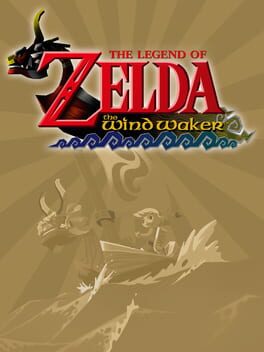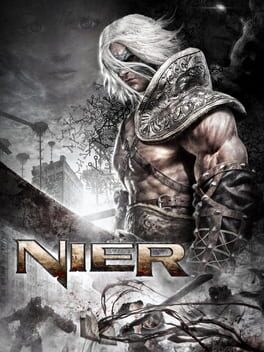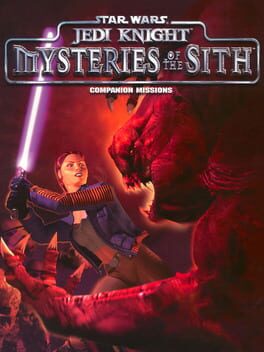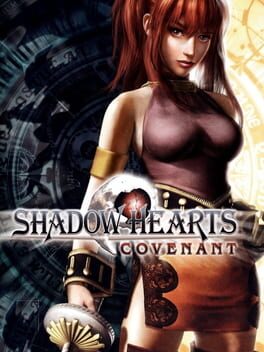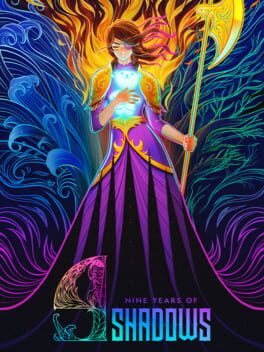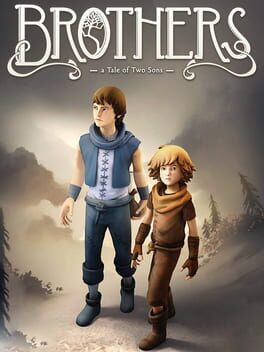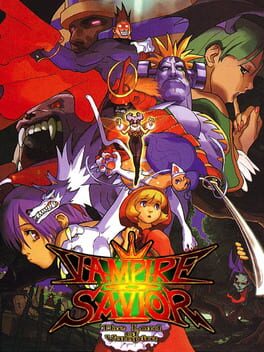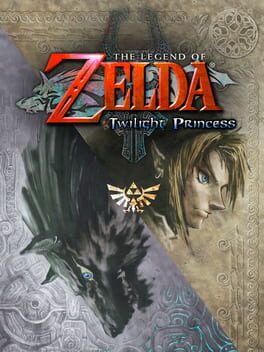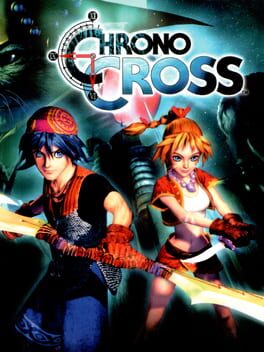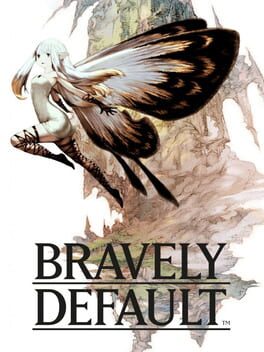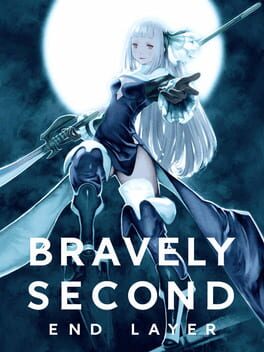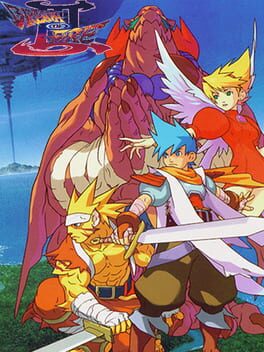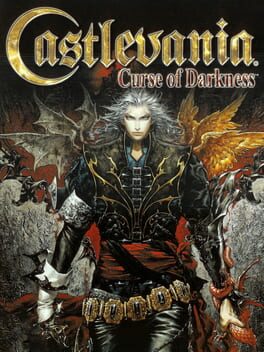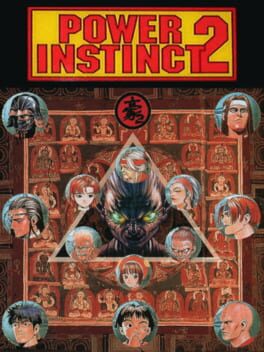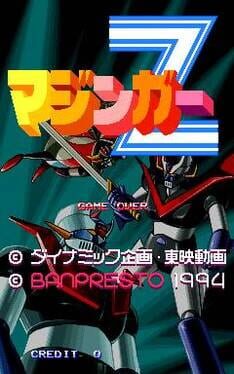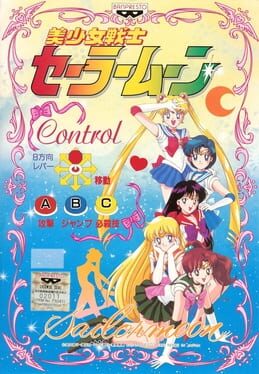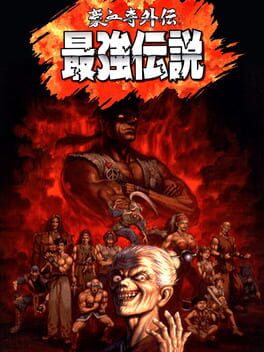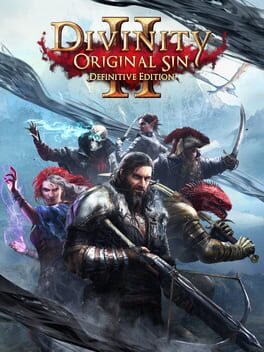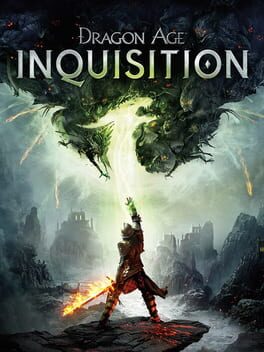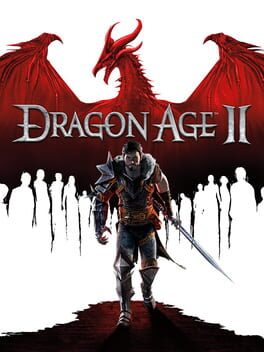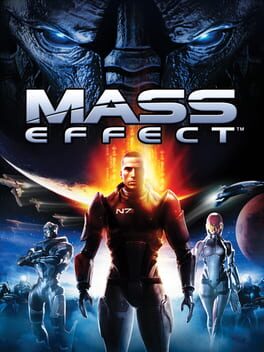curse
954 reviews liked by curse
Void Stranger
2023
There are a lot of people who talk about this game with hushed lips. I can see how this is frustrating for people that want a fuller recommendation and for those who didn’t enjoy it as much as people like me. If I’m being honest, it's probably wiser to just act as another voice echoing the “this game is great, just go play it mentality,” because this game DESERVES to be played unspoiled. If you like games in general, and are even slightly interested in it, give it a go. Stop reading this, you owe it to yourself to play a game as good as Void Stranger blind.
However, this game really is special. I really, really want to talk about it more in depth, and this site is where I talk about games. I will keep it very light on spoilers. I have been that spiteful person that continues to read/watch/listen past the spoiler warning, and I’ve often regretted it, so I refuse to actually spoil this game in full.
So what is Void Stranger? For those uninitiated, it's a 2D sokoban puzzle game. Sokoban is a genre that stems from the 1982 title of the same name, where the goal was to push around boxes in a warehouse. What you need to understand from this description is that everything is on a grid, including the player. Think Minecraft in 2D, but you can only move in increments of 1 block. Some more notable games in the same vein are 2019’s ‘Baba is You,’ and 2016’s ‘Stephen’s Sausage Roll.’ Sokoban games focus on creating puzzles in these grid like environments, usually with a gimmick that restructures the already existing format of Sokoban. In Stephen’s Sausage Roll, it's the fork. In Baba is You, it's how objects are defined in the space of play. And in Void Stranger, it's moving around the environment with a wand. It's these limitations that help Sokoban games to focus on their puzzles, as opposed to other titles that are games WITH puzzles, not puzzle games. The simple structure of Sokoban games (which oftentimes don’t have much more than four directional input) that allows the designer to hand craft situations to test the players wits, without having to account for a myriad of variables.
As far as structure in puzzle games go, I find it hard for a game to juggle narrative and gameplay in a coherent way. The easiest way I can describe this is by looking at various puzzle games and seeing which they decide to focus on. Tetris is a arcade-y puzzle game with no story, yet elegantly designed gameplay. Baba is You is the same, where there is no overarching narrative connecting the puzzles. These games are able to achieve good puzzles by not worrying about telling a narrative at all and just focusing on mechanics. Then you have games like the Portal series where the gimmicks behind the puzzles are fun to interact with, but the puzzles are kinda shit. However, I think these games are great (in particular Portal 1) because they use the premise of solving puzzles to create an interesting story. It also helps the pacing of the story, since the player isn’t very likely to get stuck on a hard puzzle (the puzzles are really easy). This approach is easy to see in playtime as well. The Portal games can easily be beaten in one sitting (I did so with both on my first playthroughs), yet the harder puzzle games might require hours for a single puzzle.
Now to be clear, I don’t think it is a fault of any of the mentioned games. They focus on only one of the two aspects mentioned and I like both approaches. I mainly bring this up to highlight that Void Stranger is able to do both. It's not that Void Stranger has a good story with a good puzzle game slapped on, or vice versa, but that they aid each other to elevate the whole experience.
It's here where I would like to interject with another spoiler warning, but with a bit more explanation as to why you should go play, as opposed to just saying go play. If you like hard puzzle games, you will probably like Void Stranger. If you like games with good stories, and are willing to put up with difficult puzzles, you will probably like Void Stranger. But most important to the discussion of spoilers, if you like what I would call “Mechanical Learning” games (some people call these Metroid-Branias) such as Outer Wilds, TUNIC, or Her Story, you will probably like Void Stranger. If you’ve played any of those titles, then I think you can begin to understand why the community surrounding this game is so careful with its spoilers.
It's this last element of design that allows for the game to intertwin gameplay and narrative so elegantly. This is because of how these “Mechanical Learning” games work. They operate in the design space that we might call ‘Meta’ gaming. Where part of the game is designed to interact with the player to a certain extent. Puzzles for the sake of puzzles can be boring, and yet, a game with a really good story that is constantly interrupted by tons of gameplay might also be considered to have bad pacing. It’s through this interactive part of the game that players that are attracted to both types of puzzle games can become more easily invested. When done correctly, meta stuff is often among the best stories games have to offer, mostly because of how unique it is to the medium of video games. Likewise, by incorporating these story elements into the game (as opposed to more and more cutscenes, exposition dumps, and item descriptions that modern games love to use) you actually get the benefit of having your story be directly tied to gameplay.
Void Stranger is a game where your understanding of it will be reshaped over and over as you continue to progress through the game. When you start the game for the first time, following a settings screen, you’ll be presented the opportunity to draw your own brand. This, along with the “inscription” you can inspect in the first room of the game, seem very obtuse and archaic by design. If you’re like me, these are the kinds of details that will stick out in your mind as you progress, wondering what purpose they serve, and why the devs so intentionally stuck them at the very beginning. It's this sort of prodding at your imagination that Void Stranger excels at. It's a game that rewards your observation with progress on larger mysteries found in the void. If these details elude you however, it will become immediately apparent that not everything is what it seems down here upon your first death. For most this will happen early on, so I don’t feel it's too big a spoiler, but essentially the game directly asks you to make a choice regarding how to proceed. This choice does have significance, but realization of what that significance is won’t happen until much later.
It's the process of learning new ways to interact with your environment that I love in these games. Learning new tricks by testing hypotheses is such a cool way to reward player curiosity. There isn’t much more to say about the meta elements without fully discussing spoilers. For me at least, they were really fun to interact with, and I had many “Holy Shit”, jaw on the floor moments. At least 5, which might be the most any individual game has had me in that mindset. I LOVED Void Stranger during these moments. Trying to piece together progression on a larger scale than individual puzzle rooms was just plain fun. I cannot praise this aspect of the game enough.
If you’ll allow a hard segway, the puzzles can be really difficult. Especially the “post-credit” content I found to be really hard when I “fully engaged” with it. This is the one reason why I’m hesitant to recommend Void Stranger to everyone. I’m really grateful I did all the hardest puzzles, as there is a good pay off at the end of all the content, and I really felt a sense of accomplishment by overcoming it. I think there was only one puzzle that I found to be unfair in the entire game, and that was the only time I had to consult a guide. I would consider that a success. It's very hard to talk about a puzzle game’s puzzles without visual cues, and without giving away the ‘a-ha’ moments where you begin to understand how to interact with simple mechanics, so all I can say was that I enjoyed it thoroughly.
The story, although simple, I found to be really compelling. It gets better the more you put into it, so I would highly recommend trying to find all narrative content. There was one scene in particular that had me nearly well up, and I think it was well earned. The Mother-Daughter dynamic feels fully fleshed out, although I can’t really dive too far in without more spoilers. As someone who doesn’t always see eye-to-eye with their parents, I found myself re-evaluating my own relationships thanks to this game. I don’t think I can give much more praise to a story than saying that it has affected me outside of my playtime, so I will leave it there for my thoughts on the game.
Miscellaneous thoughts that didn’t fit into the script:
The sound track is phenomenal. Like seriously, not just good, great.
I love the atmosphere in the game. I think it's easiest to feel when you walk into a ‘tree room’, but I love how it adapts as you find more secrets. Coming to an understanding of where you actually are, and what that place is, is hinted at far before you reach an actual explanation which I found to be really cool.
I loved all the little moments with NPC’s. This game doesn’t have sprawling prose or flashy use of figurative language, but I thought that all the writing was fitting for all the characters. That’s really all you need to be successful, and I’m glad that it was so focused. Not everything can be a Disco Elysium or a Planescape: Torment, and to be honest, not everything should be.
If you read this, thank you. Play Void Stranger.
However, this game really is special. I really, really want to talk about it more in depth, and this site is where I talk about games. I will keep it very light on spoilers. I have been that spiteful person that continues to read/watch/listen past the spoiler warning, and I’ve often regretted it, so I refuse to actually spoil this game in full.
So what is Void Stranger? For those uninitiated, it's a 2D sokoban puzzle game. Sokoban is a genre that stems from the 1982 title of the same name, where the goal was to push around boxes in a warehouse. What you need to understand from this description is that everything is on a grid, including the player. Think Minecraft in 2D, but you can only move in increments of 1 block. Some more notable games in the same vein are 2019’s ‘Baba is You,’ and 2016’s ‘Stephen’s Sausage Roll.’ Sokoban games focus on creating puzzles in these grid like environments, usually with a gimmick that restructures the already existing format of Sokoban. In Stephen’s Sausage Roll, it's the fork. In Baba is You, it's how objects are defined in the space of play. And in Void Stranger, it's moving around the environment with a wand. It's these limitations that help Sokoban games to focus on their puzzles, as opposed to other titles that are games WITH puzzles, not puzzle games. The simple structure of Sokoban games (which oftentimes don’t have much more than four directional input) that allows the designer to hand craft situations to test the players wits, without having to account for a myriad of variables.
As far as structure in puzzle games go, I find it hard for a game to juggle narrative and gameplay in a coherent way. The easiest way I can describe this is by looking at various puzzle games and seeing which they decide to focus on. Tetris is a arcade-y puzzle game with no story, yet elegantly designed gameplay. Baba is You is the same, where there is no overarching narrative connecting the puzzles. These games are able to achieve good puzzles by not worrying about telling a narrative at all and just focusing on mechanics. Then you have games like the Portal series where the gimmicks behind the puzzles are fun to interact with, but the puzzles are kinda shit. However, I think these games are great (in particular Portal 1) because they use the premise of solving puzzles to create an interesting story. It also helps the pacing of the story, since the player isn’t very likely to get stuck on a hard puzzle (the puzzles are really easy). This approach is easy to see in playtime as well. The Portal games can easily be beaten in one sitting (I did so with both on my first playthroughs), yet the harder puzzle games might require hours for a single puzzle.
Now to be clear, I don’t think it is a fault of any of the mentioned games. They focus on only one of the two aspects mentioned and I like both approaches. I mainly bring this up to highlight that Void Stranger is able to do both. It's not that Void Stranger has a good story with a good puzzle game slapped on, or vice versa, but that they aid each other to elevate the whole experience.
It's here where I would like to interject with another spoiler warning, but with a bit more explanation as to why you should go play, as opposed to just saying go play. If you like hard puzzle games, you will probably like Void Stranger. If you like games with good stories, and are willing to put up with difficult puzzles, you will probably like Void Stranger. But most important to the discussion of spoilers, if you like what I would call “Mechanical Learning” games (some people call these Metroid-Branias) such as Outer Wilds, TUNIC, or Her Story, you will probably like Void Stranger. If you’ve played any of those titles, then I think you can begin to understand why the community surrounding this game is so careful with its spoilers.
It's this last element of design that allows for the game to intertwin gameplay and narrative so elegantly. This is because of how these “Mechanical Learning” games work. They operate in the design space that we might call ‘Meta’ gaming. Where part of the game is designed to interact with the player to a certain extent. Puzzles for the sake of puzzles can be boring, and yet, a game with a really good story that is constantly interrupted by tons of gameplay might also be considered to have bad pacing. It’s through this interactive part of the game that players that are attracted to both types of puzzle games can become more easily invested. When done correctly, meta stuff is often among the best stories games have to offer, mostly because of how unique it is to the medium of video games. Likewise, by incorporating these story elements into the game (as opposed to more and more cutscenes, exposition dumps, and item descriptions that modern games love to use) you actually get the benefit of having your story be directly tied to gameplay.
Void Stranger is a game where your understanding of it will be reshaped over and over as you continue to progress through the game. When you start the game for the first time, following a settings screen, you’ll be presented the opportunity to draw your own brand. This, along with the “inscription” you can inspect in the first room of the game, seem very obtuse and archaic by design. If you’re like me, these are the kinds of details that will stick out in your mind as you progress, wondering what purpose they serve, and why the devs so intentionally stuck them at the very beginning. It's this sort of prodding at your imagination that Void Stranger excels at. It's a game that rewards your observation with progress on larger mysteries found in the void. If these details elude you however, it will become immediately apparent that not everything is what it seems down here upon your first death. For most this will happen early on, so I don’t feel it's too big a spoiler, but essentially the game directly asks you to make a choice regarding how to proceed. This choice does have significance, but realization of what that significance is won’t happen until much later.
It's the process of learning new ways to interact with your environment that I love in these games. Learning new tricks by testing hypotheses is such a cool way to reward player curiosity. There isn’t much more to say about the meta elements without fully discussing spoilers. For me at least, they were really fun to interact with, and I had many “Holy Shit”, jaw on the floor moments. At least 5, which might be the most any individual game has had me in that mindset. I LOVED Void Stranger during these moments. Trying to piece together progression on a larger scale than individual puzzle rooms was just plain fun. I cannot praise this aspect of the game enough.
If you’ll allow a hard segway, the puzzles can be really difficult. Especially the “post-credit” content I found to be really hard when I “fully engaged” with it. This is the one reason why I’m hesitant to recommend Void Stranger to everyone. I’m really grateful I did all the hardest puzzles, as there is a good pay off at the end of all the content, and I really felt a sense of accomplishment by overcoming it. I think there was only one puzzle that I found to be unfair in the entire game, and that was the only time I had to consult a guide. I would consider that a success. It's very hard to talk about a puzzle game’s puzzles without visual cues, and without giving away the ‘a-ha’ moments where you begin to understand how to interact with simple mechanics, so all I can say was that I enjoyed it thoroughly.
The story, although simple, I found to be really compelling. It gets better the more you put into it, so I would highly recommend trying to find all narrative content. There was one scene in particular that had me nearly well up, and I think it was well earned. The Mother-Daughter dynamic feels fully fleshed out, although I can’t really dive too far in without more spoilers. As someone who doesn’t always see eye-to-eye with their parents, I found myself re-evaluating my own relationships thanks to this game. I don’t think I can give much more praise to a story than saying that it has affected me outside of my playtime, so I will leave it there for my thoughts on the game.
Miscellaneous thoughts that didn’t fit into the script:
The sound track is phenomenal. Like seriously, not just good, great.
I love the atmosphere in the game. I think it's easiest to feel when you walk into a ‘tree room’, but I love how it adapts as you find more secrets. Coming to an understanding of where you actually are, and what that place is, is hinted at far before you reach an actual explanation which I found to be really cool.
I loved all the little moments with NPC’s. This game doesn’t have sprawling prose or flashy use of figurative language, but I thought that all the writing was fitting for all the characters. That’s really all you need to be successful, and I’m glad that it was so focused. Not everything can be a Disco Elysium or a Planescape: Torment, and to be honest, not everything should be.
If you read this, thank you. Play Void Stranger.
Immortals of Aveum
2023
Furi
2016
Honestly about still as good as I remember?
I feel like there's more to appreciate coming back to it now in a,, endearing way. It's like a collective playable synthwave album, down to how the attacks are basically a rhythm, but just jumbled around by bursts of twin stick sections and walking moments where you let the music play while a stupid pastiche narrates at you. And all of that is still really really fun to me. I'm enjoying the push and pull like normal, even if it's all rudimentary now that I've already beaten Furier and still have the muscle memory.
Which really surprised me, because I think that's the kind of opaque bullshit I would come back and go "wow this meant genuinely nothing, what the fuck did they think they were cooking?", but with all the environments and how the music sways it comes off more in the stoner sense where they THOUGHT they were being so interesting and deep but their eyes are staring blank straight through you lol. That's like the best way I can explain why it's fun to experience on a return.
It congeals together in such a way that I find myself unable to resent its very standard and now blatantly generic "phase" design. It's like yeah, I can get into it ^.=.^ I'm still banging my head to You're Mine, after all. Hilariously it makes me feel like I'm too harsh on Sekiro that This is the rhythm like action game I'm eating up today.
I feel like there's more to appreciate coming back to it now in a,, endearing way. It's like a collective playable synthwave album, down to how the attacks are basically a rhythm, but just jumbled around by bursts of twin stick sections and walking moments where you let the music play while a stupid pastiche narrates at you. And all of that is still really really fun to me. I'm enjoying the push and pull like normal, even if it's all rudimentary now that I've already beaten Furier and still have the muscle memory.
Which really surprised me, because I think that's the kind of opaque bullshit I would come back and go "wow this meant genuinely nothing, what the fuck did they think they were cooking?", but with all the environments and how the music sways it comes off more in the stoner sense where they THOUGHT they were being so interesting and deep but their eyes are staring blank straight through you lol. That's like the best way I can explain why it's fun to experience on a return.
It congeals together in such a way that I find myself unable to resent its very standard and now blatantly generic "phase" design. It's like yeah, I can get into it ^.=.^ I'm still banging my head to You're Mine, after all. Hilariously it makes me feel like I'm too harsh on Sekiro that This is the rhythm like action game I'm eating up today.
Cold Fear
2005
Everybody compares this to Resident Evil 4 but there's a far better - and more fascinating, in terms of considering the dev process/timelines involved - comparison: Resident Evil 3.5, the original version of Resident Evil 4 that they scrapped before pivoting towards the what they eventually released as the classic everyone remembers in 2005. Even a cursory look at when the final RE4 and Cold Fear were announced/shown will tell you that any influence from the former on the latter, if indeed there was any at all, had to be minimal at most.
This game and RE3.5 on the other hand do have one, compellingly specific key thing in common. In the final RE4 the camera was always behind Leon's back, for both normal movement and aiming. This of course eschewed the series conventions of fixed camera angles. In RE3.5 they had the fixed camera angles (with some shifting) but would switch to the over the shoulder view as you aimed your gun. Cold Fear doesn't have strictly fixed camera angles at all times but it has a lot of them and implements this exact same camera dynamic in many cirucmstances. Watch this gameplay for a bit and then go back to the RE3.5 footage linked above.
They're really close! Whether this is the Cold Fear team seeing that early RE3.5 footage (the gameplay linked was first shown at E3 2003) and taking influence or just two companies converging on the same idea I've obviously no clue. Darkworks' previous game, Alone in the Dark: The New Nightmare, was already a fixed camera survival horror so it's a not a huge leap to make. Regardless, it's a curious little detail of gaming history that things played out this way. The ideas of one project that never saw fruition in their original context instead coming to the fore in a game from a different company, only for that game to be consigned to the bargain bin of history as a 'clone' of that original project's final outcome.
This game and RE3.5 on the other hand do have one, compellingly specific key thing in common. In the final RE4 the camera was always behind Leon's back, for both normal movement and aiming. This of course eschewed the series conventions of fixed camera angles. In RE3.5 they had the fixed camera angles (with some shifting) but would switch to the over the shoulder view as you aimed your gun. Cold Fear doesn't have strictly fixed camera angles at all times but it has a lot of them and implements this exact same camera dynamic in many cirucmstances. Watch this gameplay for a bit and then go back to the RE3.5 footage linked above.
They're really close! Whether this is the Cold Fear team seeing that early RE3.5 footage (the gameplay linked was first shown at E3 2003) and taking influence or just two companies converging on the same idea I've obviously no clue. Darkworks' previous game, Alone in the Dark: The New Nightmare, was already a fixed camera survival horror so it's a not a huge leap to make. Regardless, it's a curious little detail of gaming history that things played out this way. The ideas of one project that never saw fruition in their original context instead coming to the fore in a game from a different company, only for that game to be consigned to the bargain bin of history as a 'clone' of that original project's final outcome.
Void Stranger
2023
This review contains spoilers
“Become endless? To hell with all of that! I'm happy because we're together, right here and now. Even when the last star burns out... This memory will surely remain. Because I love you.”
I am assuming that if you have decided to click on that ‘I’m ready’ button you have learnt of the curious decision made within the heart of the void. If you have not, I will not begrudge you of your agency if you decide to read on further. I myself cheated this game out of its many secrets similarly to this, yet by the time I did so, it was because I was fully enamoured with it. So, I give this final opportunity to turn back should you seek to form your own infatuation with this experience before I corrupt any preconception you have with that of my bias.
As you are left perhaps still reeling at the decision made by Lady Gray, you reload the game and are given a brief reprieve to absorb what exactly has just transpired before you are thrown back once more into the void. That initial premise of Void Stranger you just endured in that first playthrough, encapsulating those classical story archetypes, was merely there to serve as pretext. A formative basis in which to be iterated upon in a never-ending pursuit of recontextualization and retrospection. The first layer of many in which you engage and form an understanding with a literature’s thoughts and ideas. Conventionally most stories will end here leaving the reader on their own to pursue any further depths, Void Stranger however does the work for you in reframing itself. Narratively bringing itself forward an age, the world setting shifting to cement this change. Becoming modern, a more contemporary piece, self-critical and questioning. The game’s story structure has evolved paralleling that of how story frameworks have over time. You slowly discover that Void Stranger is about the ever-evolving nature of literature itself.
But no that is not the immediate concern is it, this realisation happens later when the dust is settled and the immediate fire is put out. The most pressing thought that dwells in one’s mind for the second playthrough is less abstract. This thought as you are given control over a new character, this stranger that Gray chose over the very charge in which she braved hell itself for, forms a simple question. Why? Why did she make that choice?
And here lies the focal point of this game. Void Stranger is ultimately not a drama nor a romance but that of a tragedy. It is about the insurmountable power of love yes, but more so about one of its perpetually recurring adversities. More specifically that of the irreconcilable differences between the understanding of love of a parent with that of their child. How these different interpretations of love between them are not reciprocated because they each are conceived from that which is fundamentally opposed.
Gray embodies limitless love for one person, but that devotion was never towards her daughters. Instead, Gray’s love and devotion is ethereal, directed towards the voided, to that of a deceased queen upon whom their lineage derives. In lieu of a living being of flesh in which to dedicate her love, there is only simple memory. If memory is all that remains then so be it, Gray will see to it that it persists eternally. A light that she must see become endless.
Parents do not love their children for who they are. How can they? Initially there is nothing in which to form such a connection. These fragile zygotes that only eventually grow into personhood have yet to form a self. They are naught more than a growing mass of flesh. To sincerely love a child before they can grow and realise themselves is impossible. Instead, a parent loves that which they can project onto, a perceived potential. A belief in the idea of what the child will eventually become. For Gray that belief is in that endless light. That these children, and their children, and their children will live ever eternal. Proxies for the endlessly recurring memory that she is devoted to. This is a sincere expression of love. The tragic rationale on how she made that choice in the void.
A child’s love in turn starts as something much cleaner but unfortunately no less delusional. It, at least, is founded upon something tangible, the corporeal and living caretaker in front of them. This person who seemingly loves them unconditionally. As the child grows and attains self-actualization, this formative perception of love is sought to be reciprocated. Lillie (and the Lily whom was lost to the void) loves Gray wholeheartedly. And in turn seek to express this love by embodying to become just like them, to honour them by living as their reflection. Eventually however, it is come to be understood that the unconditional basis that formed such a love is not real.
And yet it does not matter at all! Love is belief in as much as it is devotion. Lillie embodies a sincere unconditional love for her mother Gray naïve it may be. This love however is not what Gray sought. She cannot accept Lillie to live for her sake over that of her muse. To do so would extinguish her memory, her eternal light, to kill what little remains. And so Gray does not, and cannot, reciprocate this love coming from this reflection herself. And so she rejects it.
There is no recourse. The memory is still doomed to fade. Devotion without purpose is foolishness. As Gray too becomes only memory what then becomes of Lillie? This being whose self was conceived from the basis of these two irreconcilable and unreciprocated beliefs in love? The dawning realization that Lillie could never become someone Gray could see as worthy to love. That perhaps she only exists as a wrong choice, that it should have been her left behind in the void. What answer exists there for her should she return? For one devoid of devotion? I will not deny you from forming your answer by presenting my own.
Void Stranger does not end here. As far as I am aware Void Stranger does not end. It seeks to encapsulate something grander than a story. The journey of life itself in all its infinite recursion. It repeats that trick mentioned earlier once more. Bringing the story forward another age, recontextualizing itself. The nature of story itself now coming under scrutiny. The enigmatic purpose of demons and of void to be elaborated upon and revealed. A work as a living being in which we breathe life into. Now becoming post-modern.
But I am not capable nor willing to elaborate any further. Satisfied as I am to leave it here. The adventure of life goes on, with and without me.
“I don’t know what this feeling is, but… I was searching for it for a long time. Now that I’ve found it… I realize that it doesn’t belong to me.”
I am assuming that if you have decided to click on that ‘I’m ready’ button you have learnt of the curious decision made within the heart of the void. If you have not, I will not begrudge you of your agency if you decide to read on further. I myself cheated this game out of its many secrets similarly to this, yet by the time I did so, it was because I was fully enamoured with it. So, I give this final opportunity to turn back should you seek to form your own infatuation with this experience before I corrupt any preconception you have with that of my bias.
As you are left perhaps still reeling at the decision made by Lady Gray, you reload the game and are given a brief reprieve to absorb what exactly has just transpired before you are thrown back once more into the void. That initial premise of Void Stranger you just endured in that first playthrough, encapsulating those classical story archetypes, was merely there to serve as pretext. A formative basis in which to be iterated upon in a never-ending pursuit of recontextualization and retrospection. The first layer of many in which you engage and form an understanding with a literature’s thoughts and ideas. Conventionally most stories will end here leaving the reader on their own to pursue any further depths, Void Stranger however does the work for you in reframing itself. Narratively bringing itself forward an age, the world setting shifting to cement this change. Becoming modern, a more contemporary piece, self-critical and questioning. The game’s story structure has evolved paralleling that of how story frameworks have over time. You slowly discover that Void Stranger is about the ever-evolving nature of literature itself.
But no that is not the immediate concern is it, this realisation happens later when the dust is settled and the immediate fire is put out. The most pressing thought that dwells in one’s mind for the second playthrough is less abstract. This thought as you are given control over a new character, this stranger that Gray chose over the very charge in which she braved hell itself for, forms a simple question. Why? Why did she make that choice?
And here lies the focal point of this game. Void Stranger is ultimately not a drama nor a romance but that of a tragedy. It is about the insurmountable power of love yes, but more so about one of its perpetually recurring adversities. More specifically that of the irreconcilable differences between the understanding of love of a parent with that of their child. How these different interpretations of love between them are not reciprocated because they each are conceived from that which is fundamentally opposed.
Gray embodies limitless love for one person, but that devotion was never towards her daughters. Instead, Gray’s love and devotion is ethereal, directed towards the voided, to that of a deceased queen upon whom their lineage derives. In lieu of a living being of flesh in which to dedicate her love, there is only simple memory. If memory is all that remains then so be it, Gray will see to it that it persists eternally. A light that she must see become endless.
Parents do not love their children for who they are. How can they? Initially there is nothing in which to form such a connection. These fragile zygotes that only eventually grow into personhood have yet to form a self. They are naught more than a growing mass of flesh. To sincerely love a child before they can grow and realise themselves is impossible. Instead, a parent loves that which they can project onto, a perceived potential. A belief in the idea of what the child will eventually become. For Gray that belief is in that endless light. That these children, and their children, and their children will live ever eternal. Proxies for the endlessly recurring memory that she is devoted to. This is a sincere expression of love. The tragic rationale on how she made that choice in the void.
A child’s love in turn starts as something much cleaner but unfortunately no less delusional. It, at least, is founded upon something tangible, the corporeal and living caretaker in front of them. This person who seemingly loves them unconditionally. As the child grows and attains self-actualization, this formative perception of love is sought to be reciprocated. Lillie (and the Lily whom was lost to the void) loves Gray wholeheartedly. And in turn seek to express this love by embodying to become just like them, to honour them by living as their reflection. Eventually however, it is come to be understood that the unconditional basis that formed such a love is not real.
And yet it does not matter at all! Love is belief in as much as it is devotion. Lillie embodies a sincere unconditional love for her mother Gray naïve it may be. This love however is not what Gray sought. She cannot accept Lillie to live for her sake over that of her muse. To do so would extinguish her memory, her eternal light, to kill what little remains. And so Gray does not, and cannot, reciprocate this love coming from this reflection herself. And so she rejects it.
There is no recourse. The memory is still doomed to fade. Devotion without purpose is foolishness. As Gray too becomes only memory what then becomes of Lillie? This being whose self was conceived from the basis of these two irreconcilable and unreciprocated beliefs in love? The dawning realization that Lillie could never become someone Gray could see as worthy to love. That perhaps she only exists as a wrong choice, that it should have been her left behind in the void. What answer exists there for her should she return? For one devoid of devotion? I will not deny you from forming your answer by presenting my own.
Void Stranger does not end here. As far as I am aware Void Stranger does not end. It seeks to encapsulate something grander than a story. The journey of life itself in all its infinite recursion. It repeats that trick mentioned earlier once more. Bringing the story forward another age, recontextualizing itself. The nature of story itself now coming under scrutiny. The enigmatic purpose of demons and of void to be elaborated upon and revealed. A work as a living being in which we breathe life into. Now becoming post-modern.
But I am not capable nor willing to elaborate any further. Satisfied as I am to leave it here. The adventure of life goes on, with and without me.
“I don’t know what this feeling is, but… I was searching for it for a long time. Now that I’ve found it… I realize that it doesn’t belong to me.”
Parry Nightmare
2024
Parry Nightmare is something of a bullet hell game, where instead of solely trying to dodge your main form of attack is parrying approaching enemies. You play as a soul, trapped in a lucid nightmare along with your demonic guardian Honnou, in which you must fight and reflect on major points of trauma and stress in your life.
I have a few points of contention with this game. I will start first by saying that aesthetically and atmospherically, it succeeds hard. Despite being short, it gives off a well polished and kind of eccentric vibe... when I first started playing, I thought it had a feeling like Paper Mario or Warioware though the gameplay didnt reflect that, of course.
The game is hard. It might be one of the most difficult games I have ever played. It is not like other bullet hells, where they slowly ease you into things, with your safety net of bombs or other clearing objects for when you get stuck. You stand in a circular room, enemies coming from all sides, your main point of interaction is hitting A when an enemy gets within a certain range of you to parry. Honnou will then shoot when they are down and you can collect a light fragment from them, 100 being needed to beat the level... though, one light drop from one enemy only seems to be .1 instead of a full figure, which isnt that big of a problem, but you also cant see at first and need to collect 70 of these light drops to have a full range of the room. You can not take many hits, and when youre down to your last health you become sluggish until you gain some more (which pretty much means youre going to die), your clearing bomb isnt on hand but instead its built up when you do well, so if you get hit once or parry early you can lose it and become overwhelmed. Bosses can also only be hit with this attack and take up a large portion of the arena. Even though traditional bullet hells are long, somehow dying in this feels worse. The levels are short, can be beaten in under 5 minutes, but somehow every time I died I felt like it wasnt my fault. Enemies move very, very fast and its incredibly easy to just have a boss sit its ass right down on you when youre sluggish and can barely move. It feels like I make one tiny mistake, parry early, my level goes down (as it does when you miss a parry), then Honnou isnt strong enough to fight off everyone and I get overwhelmed and die and now its dark again and uuuuugh. If there was one safety net (like a mid level checkpoint) I feel like it would be much more manageable, but as it is now it is insanely difficult.
Story-wise, I also had a sour taste in my mouth after finishing. Parry Nightmare takes place in Japan, and a lot of the protagonist girl's problems extend out of stresses common in the region (high workload, lack of personal time, shaky relationship with family), and though these issues are semi-universal, the problem presents itself in how the ending treats these traumas. Throughout the game, the girl makes it clear that she is deeply miserable on a base level to the point where she barely recognizes she has things she enjoys. She has little time to herself, her entire life commandeered and seen through what other people expect of her, down to the makeup brand she uses. Her mother makes her deeply unhappy and scared her as a child, her apartment is messy and fraught witn objects reminding her of stress. It is clear that if she continues living the way she is living, ignoring the messages from her body and mind, that she will get deeply sick, live a completely unsatisfying life, and probably die early. That's what I thought the game was leading up to- a wakeup call, time to make a change. Instead, the ending? "Your soul can overcome anything! Just keep pushing through!" And then it cuts to a cutscene where the girl is doing her work efficiently and talking to her mom on the phone, happily. So, what is it then? Was the moral of the story that everyone has things that stress them out, that the best thing we can ever hope to do is "push through them" instead of confronting why it is exactly that we dislike our parents, yet can't seem to admit it, why it is that we force ourselves to work so hard. Is the best we can ever hope to do is "push through" all of it? Is that healthy? There is a major contradiction in the game's messaging here. Though it seems like you're fighting off these traumas at first, it appears all you're capable of doing is subduing them until the next time they wring their ugly neck out in whatever form they take next. It felt icky, watching this person go back to a job they hate and a mother that has hurt them. I cant stand that ideology of "just deal with it" that has ruined many bodies and minds all at once.
So, it was interesting. Parry Nightmare feels good, solid. It's mostly the attitude it takes on the matter of stress that sours my opinion of it in general, as well as the difficulty. If you like short, challenging games then perhaps I would reccomend checking it out, just don't go taking life lessons from it.
I have a few points of contention with this game. I will start first by saying that aesthetically and atmospherically, it succeeds hard. Despite being short, it gives off a well polished and kind of eccentric vibe... when I first started playing, I thought it had a feeling like Paper Mario or Warioware though the gameplay didnt reflect that, of course.
The game is hard. It might be one of the most difficult games I have ever played. It is not like other bullet hells, where they slowly ease you into things, with your safety net of bombs or other clearing objects for when you get stuck. You stand in a circular room, enemies coming from all sides, your main point of interaction is hitting A when an enemy gets within a certain range of you to parry. Honnou will then shoot when they are down and you can collect a light fragment from them, 100 being needed to beat the level... though, one light drop from one enemy only seems to be .1 instead of a full figure, which isnt that big of a problem, but you also cant see at first and need to collect 70 of these light drops to have a full range of the room. You can not take many hits, and when youre down to your last health you become sluggish until you gain some more (which pretty much means youre going to die), your clearing bomb isnt on hand but instead its built up when you do well, so if you get hit once or parry early you can lose it and become overwhelmed. Bosses can also only be hit with this attack and take up a large portion of the arena. Even though traditional bullet hells are long, somehow dying in this feels worse. The levels are short, can be beaten in under 5 minutes, but somehow every time I died I felt like it wasnt my fault. Enemies move very, very fast and its incredibly easy to just have a boss sit its ass right down on you when youre sluggish and can barely move. It feels like I make one tiny mistake, parry early, my level goes down (as it does when you miss a parry), then Honnou isnt strong enough to fight off everyone and I get overwhelmed and die and now its dark again and uuuuugh. If there was one safety net (like a mid level checkpoint) I feel like it would be much more manageable, but as it is now it is insanely difficult.
Story-wise, I also had a sour taste in my mouth after finishing. Parry Nightmare takes place in Japan, and a lot of the protagonist girl's problems extend out of stresses common in the region (high workload, lack of personal time, shaky relationship with family), and though these issues are semi-universal, the problem presents itself in how the ending treats these traumas. Throughout the game, the girl makes it clear that she is deeply miserable on a base level to the point where she barely recognizes she has things she enjoys. She has little time to herself, her entire life commandeered and seen through what other people expect of her, down to the makeup brand she uses. Her mother makes her deeply unhappy and scared her as a child, her apartment is messy and fraught witn objects reminding her of stress. It is clear that if she continues living the way she is living, ignoring the messages from her body and mind, that she will get deeply sick, live a completely unsatisfying life, and probably die early. That's what I thought the game was leading up to- a wakeup call, time to make a change. Instead, the ending? "Your soul can overcome anything! Just keep pushing through!" And then it cuts to a cutscene where the girl is doing her work efficiently and talking to her mom on the phone, happily. So, what is it then? Was the moral of the story that everyone has things that stress them out, that the best thing we can ever hope to do is "push through them" instead of confronting why it is exactly that we dislike our parents, yet can't seem to admit it, why it is that we force ourselves to work so hard. Is the best we can ever hope to do is "push through" all of it? Is that healthy? There is a major contradiction in the game's messaging here. Though it seems like you're fighting off these traumas at first, it appears all you're capable of doing is subduing them until the next time they wring their ugly neck out in whatever form they take next. It felt icky, watching this person go back to a job they hate and a mother that has hurt them. I cant stand that ideology of "just deal with it" that has ruined many bodies and minds all at once.
So, it was interesting. Parry Nightmare feels good, solid. It's mostly the attitude it takes on the matter of stress that sours my opinion of it in general, as well as the difficulty. If you like short, challenging games then perhaps I would reccomend checking it out, just don't go taking life lessons from it.
Persona 5 Royal
2019
List of mods I used available on my pastebin post here. I should also note that “Mastered” in my case means getting all the achievements, leaving out a handful of Thieves Den Awards that become active or otherwise easier to nab in NG+.
For an RPG I heavily played well over a month, hot off the heels of revisiting Persona 3 in its original and remade form, as well as the hot button topic it’s become over the years, you'd expect I'd have a lot to say about Persona 5 Royal. Well... I don't, really. All I can think about in my sleep deprived state is how my 200+ hour venture - and that's generously ignoring inflated idle times Steam's counter acclimates - is how woefully underwhelming the package was save for a few bright spots, and how dispassionately apathetic I became after finally finishing and scouring out for the light.
It’s funny I mentioned my time investment a bit off the heels of a discord within FF7 Rebirth’s activities and planning, cause it should be mentioned (and emphasized) that it’s actually pretty easy to focus and fine-tune your palette into whatever it is you desire. No one except yourself, and perhaps foolish pride, is forcing you to do all of those activities after all, unless they’re particularly easy to nab off the beaten path. That is, of course, neglecting the key component: the focal point where all points are stitched and huddled around, an area P5R constantly falters over. Already saw a flashback sequence? Fret not, you’re gonna be subjugated to it not 10 minutes after. Got a good grasp of the ongoings of the story, be it by themes or event details? Alright, but you’re gonna have to bear the condescending attitude as you watch the character(s) exposit these things anyway. Grew a form of investment over a beat and how it unfolds before and during the main show? Slow your roll there bucko, you haven’t heard about the overly unnecessary and outright damaging undercurrent that ruins it! Sure, it sounds like hyperbole, and as you go along many of these detriments are either quelled or nulled, but it doesn’t change the fact that they’re present, nor does it alleviate their weight of bloat and the meekish presentation of what are honestly some pretty simple themes. The fact it took my entire first session of play to get to the initial true Free Time event on the 18th, whereas P3 - both versions, might I add - give me that freedom within just a few short hours and P4 just about half of this, is appalling.
The writing woes extend to the Phantom Thieves themselves, which I suppose isn’t a Hot Take or anything since there’s been a bit of a debate surrounding them over the years. To dispel some common points, I don’t believe the notion that they are “centered” around Joker - on the contrary, not only is this running along the recurring theme of “kinship through displacement”, there’s already a bit of an established line between Ann and Ryuji, Futaba and Sojiro, and, though faint and dubious, Makoto and Haru. As a group, there’s a rather believable sense of friendship and camaraderie developed and finalized throughout the course of the story amidst the hustle and bustle of urban civilization, which is a bit of a surprise since I was pessimistically expecting the opposite. What did come true, unfortunately, is the individualism and expression delivered from these people. The handling of Ann and Haru are criticized enough that I don’t think I can add anything to the former’s blobby mold of an archetype and hypocritical implementation of her supposed freedom of self-expression and the latter’s seed of growth taken away due to the already mentioned bloat plaguing the game, same with Ryuji and how his (great) Social Link about reliance on others and strength through teamwork is routinely undermined by him being treated as a joke within the main cutscenes. Futaba is ostensibly headcanoned as one under the Autism umbrella, and while the intent is competently delivered and well-handled, the amount of #GAMER allusions are poor and clumsily handled, leading to a bumpy state of her psyche. Yusuke, who’s SL arc revolves around the dichotomy of man and their drive of passion within the hobbyist and professional mindset, is often treated as The Quirky Oddball One of the group with superficial understanding as to what art is since they did this like, twice before I guess and believed third time is truly the charm, which is also why they made Morgana have the same arc as Teddie and Aigis but without any of the things that made those two compelling. Of the group, Makoto is the one with the fewest of weights holding her down; her arc is straightforward, explored to its fullest in her SL with little downplay within the narrative, and her importance in the group is always front and center. Her straight-edge nature can be too plain at times, granted, as are her connecting points of her resolution and resolve, but compared to everyone else? It’s way easier to swallow. To reiterate, however, my main issue isn’t with the characters themselves, honestly I only truly despise Morgana and his obnoxious (albeit small in intensity) demeanor - it’s just kind of hard to truly feel connected with the group when the game seems to treat them more so as dolls for amusement than actual people, something even P4 never fully delved into in its outing.
I kind of wish I had more to say, really, cause it’s not as if I totally hate P5R or anything. There’s some good bits in here, like the full exploration of escapism as a theme finally being done here thanks to the “Royal” part of the game desperately giving the endgame a sense of closure, some of the non-essential confidants like Hifumi, Mishima, Chihaya and Yoshida being great to explore despite the drawbacks, and the superbosses being a fair bit of fun to go over. But, like, I’m not really sure what more I can add unfortunately. I’d sort of just be repeating common talking points and, compounded by the fact I’m facing burnout from both writing and my aforementioned time allocation, it just feels fruitless to go over? Like I don’t want to be the umpteenth mouthpiece going over how ridiculously easy this game is even excluding Merciless’ baffling(ly hilarious) modifiers pertaining to player favor and the constricted dungeon design making it so that ambushes are a rare, if ever present, occurrence one can face, cause everyone already discussed that. Did you know that, even in the original team, there were some Etrian Odyssey battle planners? Really makes me wonder how the hell it ended up so milquetoast in engagement, dungeon layout, and the us v them nature of gameplay routing when EO1’s first two stratums already had more going on. It’s also why I’m hardpressed to mention my adoration with Third Semester, cause I can’t quite word it in a way that isn’t already brought up by the people, what with Maruki, Akechi, and Kasumi being the ethos, pathos, and logos of Joker’s - and by principle, Yuki and Narukami’s - Wild Card slot and the reflection they face should his life be altered ever so slightly.
I dunno man, it’s like… expansion aside, this is the RPG that got a lot of people into the genre now? The Atlus mega-hit? I’m a lot cooler on the problems than others seem to be, and I wouldn’t cynically berate others over this cause that’s stupid and rude, but it does leave me scratching my head and wondering what else I had missed in my long, long journey as an urbanite Fool.
For an RPG I heavily played well over a month, hot off the heels of revisiting Persona 3 in its original and remade form, as well as the hot button topic it’s become over the years, you'd expect I'd have a lot to say about Persona 5 Royal. Well... I don't, really. All I can think about in my sleep deprived state is how my 200+ hour venture - and that's generously ignoring inflated idle times Steam's counter acclimates - is how woefully underwhelming the package was save for a few bright spots, and how dispassionately apathetic I became after finally finishing and scouring out for the light.
It’s funny I mentioned my time investment a bit off the heels of a discord within FF7 Rebirth’s activities and planning, cause it should be mentioned (and emphasized) that it’s actually pretty easy to focus and fine-tune your palette into whatever it is you desire. No one except yourself, and perhaps foolish pride, is forcing you to do all of those activities after all, unless they’re particularly easy to nab off the beaten path. That is, of course, neglecting the key component: the focal point where all points are stitched and huddled around, an area P5R constantly falters over. Already saw a flashback sequence? Fret not, you’re gonna be subjugated to it not 10 minutes after. Got a good grasp of the ongoings of the story, be it by themes or event details? Alright, but you’re gonna have to bear the condescending attitude as you watch the character(s) exposit these things anyway. Grew a form of investment over a beat and how it unfolds before and during the main show? Slow your roll there bucko, you haven’t heard about the overly unnecessary and outright damaging undercurrent that ruins it! Sure, it sounds like hyperbole, and as you go along many of these detriments are either quelled or nulled, but it doesn’t change the fact that they’re present, nor does it alleviate their weight of bloat and the meekish presentation of what are honestly some pretty simple themes. The fact it took my entire first session of play to get to the initial true Free Time event on the 18th, whereas P3 - both versions, might I add - give me that freedom within just a few short hours and P4 just about half of this, is appalling.
The writing woes extend to the Phantom Thieves themselves, which I suppose isn’t a Hot Take or anything since there’s been a bit of a debate surrounding them over the years. To dispel some common points, I don’t believe the notion that they are “centered” around Joker - on the contrary, not only is this running along the recurring theme of “kinship through displacement”, there’s already a bit of an established line between Ann and Ryuji, Futaba and Sojiro, and, though faint and dubious, Makoto and Haru. As a group, there’s a rather believable sense of friendship and camaraderie developed and finalized throughout the course of the story amidst the hustle and bustle of urban civilization, which is a bit of a surprise since I was pessimistically expecting the opposite. What did come true, unfortunately, is the individualism and expression delivered from these people. The handling of Ann and Haru are criticized enough that I don’t think I can add anything to the former’s blobby mold of an archetype and hypocritical implementation of her supposed freedom of self-expression and the latter’s seed of growth taken away due to the already mentioned bloat plaguing the game, same with Ryuji and how his (great) Social Link about reliance on others and strength through teamwork is routinely undermined by him being treated as a joke within the main cutscenes. Futaba is ostensibly headcanoned as one under the Autism umbrella, and while the intent is competently delivered and well-handled, the amount of #GAMER allusions are poor and clumsily handled, leading to a bumpy state of her psyche. Yusuke, who’s SL arc revolves around the dichotomy of man and their drive of passion within the hobbyist and professional mindset, is often treated as The Quirky Oddball One of the group with superficial understanding as to what art is since they did this like, twice before I guess and believed third time is truly the charm, which is also why they made Morgana have the same arc as Teddie and Aigis but without any of the things that made those two compelling. Of the group, Makoto is the one with the fewest of weights holding her down; her arc is straightforward, explored to its fullest in her SL with little downplay within the narrative, and her importance in the group is always front and center. Her straight-edge nature can be too plain at times, granted, as are her connecting points of her resolution and resolve, but compared to everyone else? It’s way easier to swallow. To reiterate, however, my main issue isn’t with the characters themselves, honestly I only truly despise Morgana and his obnoxious (albeit small in intensity) demeanor - it’s just kind of hard to truly feel connected with the group when the game seems to treat them more so as dolls for amusement than actual people, something even P4 never fully delved into in its outing.
I kind of wish I had more to say, really, cause it’s not as if I totally hate P5R or anything. There’s some good bits in here, like the full exploration of escapism as a theme finally being done here thanks to the “Royal” part of the game desperately giving the endgame a sense of closure, some of the non-essential confidants like Hifumi, Mishima, Chihaya and Yoshida being great to explore despite the drawbacks, and the superbosses being a fair bit of fun to go over. But, like, I’m not really sure what more I can add unfortunately. I’d sort of just be repeating common talking points and, compounded by the fact I’m facing burnout from both writing and my aforementioned time allocation, it just feels fruitless to go over? Like I don’t want to be the umpteenth mouthpiece going over how ridiculously easy this game is even excluding Merciless’ baffling(ly hilarious) modifiers pertaining to player favor and the constricted dungeon design making it so that ambushes are a rare, if ever present, occurrence one can face, cause everyone already discussed that. Did you know that, even in the original team, there were some Etrian Odyssey battle planners? Really makes me wonder how the hell it ended up so milquetoast in engagement, dungeon layout, and the us v them nature of gameplay routing when EO1’s first two stratums already had more going on. It’s also why I’m hardpressed to mention my adoration with Third Semester, cause I can’t quite word it in a way that isn’t already brought up by the people, what with Maruki, Akechi, and Kasumi being the ethos, pathos, and logos of Joker’s - and by principle, Yuki and Narukami’s - Wild Card slot and the reflection they face should his life be altered ever so slightly.
I dunno man, it’s like… expansion aside, this is the RPG that got a lot of people into the genre now? The Atlus mega-hit? I’m a lot cooler on the problems than others seem to be, and I wouldn’t cynically berate others over this cause that’s stupid and rude, but it does leave me scratching my head and wondering what else I had missed in my long, long journey as an urbanite Fool.
Void Stranger
2023
“For these defects, and for no other evil, we are now lost and punished just with this: We have no hope and yet we live in longing”
Devotion is an incredibly potent motivator. Our capacity to love something or someone to such an extent that we can pledge every facet of our being to their cause is both a wonderful, yet tragic curse. This infatuation we have can allow us to endure even the circles of hell itself, but in turn it makes us blind. We forgo all else around in the pursuit of perpetuating the eternal memory of our devotee.
Void Stranger is a hard game to discuss for several reasons. The most pressing of which is that you simply are not allowed to speak of it in any meaningful capacity lest you give its game away to the uninitiated. So sacred are its labyrinthian secrets revered by those privy that they are selfishly hoarded, and only dispensed piecemeal to the desperate to prevent them from succumbing entirely to the void. It should be self-evident from this alone that there is much value to be had from this game through self-discovery. That to discuss the contents within its locker is tantamount to sin.
Yet to not talk about it defeats its message! Did others not play the same game as I? Did they not learn of the ultimate tragedy that ensues when keeping something so tight to one’s chest? To keep silent of our experiences is to allow them to die with us! These bearings are to be exposed. These walls we build around ourselves must crumble away so that who we are may be shared.
This review is a compromise of these two thoughts and split accordingly into two parts. The first, in which you are reading, to serve as mere bait to entice the curious and hungry into a deadly snare. A brief synopsis of memory deliberately obfuscated to reveal limited truth and provide some initial guidance. A second intended to be read for those whom have completed a ‘successful’ dive into the void, in which I will elaborate upon the true nature of the abyss. Such tiered structure of revelation is at the very core of this story that I would seek to have you to play.
Void Stranger presents itself as a classical story about how one’s devotion can surpass all. Lady Gray is the embodiment of traditionally noble ideals. Conviction and duty are paramount to her. She honours that which she loves by seeking to exist as an extension of their will. There is no burden too great that she is unwilling or seemingly unable to bear. This to her is the nature of love itself, the meaning she has ascribed to it. She expresses love through her devotion.
And yet this labyrinth she is made to endure is ultimately one of judgment. A condemnation of those who wander its ever-twisting halls. These puzzles that you initially meet with earnest resolve, they will slowly wear you ragged. They will wear away at your soul. They will surely consume you. You will soon come to an understanding that playing this much Sokoban truly is hell! The question becomes what do you do afterwards when your resolve falters?
There are a few options available to you when this occurs. Not all are obvious. ALL of them are valid ways to progress. The one and only meaningful purpose of this initial review is to provide this assurance. That each of these paths will ultimately, albeit differently, lead to payoff.
The most intuitive of course being to press onwards undeterred. Conviction, duty, devotion, so neatly align with that of a quality that games as a medium tend to cultivate within its players. Determination. With simply enough perseverance you will succeed. And although I offer alternatives do not let this dissuade you from this road. It is the intended path to follow, and you will be uniquely rewarded should you tread it.
Perhaps though you will try again. Repeat the game fresh from the start. Carrying over only a more experienced perspective. A less naïve and more discerning approach. There are secrets to these halls after all, that which you may have noticed but were too late to act upon in retrospect.
Or perhaps you will simply give up. Move on and play something else. This too is a valid conclusion to the journey. There is no shame in doing so. So many others have fallen to these halls after all and so too will all in time. To perpetuate memory eternal is foolish. Let it fade.
However most controversially I offer a final recourse that some would consider taboo. Cheat. Cheat a little. Cheat a lot even. Cheat as much as you think you have been cheated by. Look at floor puzzle guides. Ask for advice or hints from others whom have undertaken this journey. I will not pretend that the other roads are not more ideal. But you have nothing to prove. It is not your devotion that is being tested after all.
Ultimately Void Stranger is a game that seeks to hurt you. It hurt me and it is this grievance that I wish to share. And at the end of the void, if you have not lost yourself, you will discover the folly that is devotion. Can you remember why you are here?
(I recommend this game first and foremost to those who wish to see videogames elevated as a form of literary art. After playing this it has shown my faith in the medium in being able to convey unique and profound experiences to not be misplaced. However, that is not without caveats. This is a long and grueling journey with an initially uncertain payoff. It demands a lot of time from you. Some knowledge is gatekeeped until you have endured a requisite amount of suffering. This however is a part of the ‘art’. It is absolutely my favourite game I have played in quite some while. Sokoban fans may even find they might enjoy this too!)
“I wonder... Maybe we're simply too late. All light that reaches us is just a faded memory. If we wish to escape their fate... We must shine even brighter. Our light must become endless.”
Part 2 is here (Full of spoilers): https://www.backloggd.com/u/GingerV/review/1566841/
Devotion is an incredibly potent motivator. Our capacity to love something or someone to such an extent that we can pledge every facet of our being to their cause is both a wonderful, yet tragic curse. This infatuation we have can allow us to endure even the circles of hell itself, but in turn it makes us blind. We forgo all else around in the pursuit of perpetuating the eternal memory of our devotee.
Void Stranger is a hard game to discuss for several reasons. The most pressing of which is that you simply are not allowed to speak of it in any meaningful capacity lest you give its game away to the uninitiated. So sacred are its labyrinthian secrets revered by those privy that they are selfishly hoarded, and only dispensed piecemeal to the desperate to prevent them from succumbing entirely to the void. It should be self-evident from this alone that there is much value to be had from this game through self-discovery. That to discuss the contents within its locker is tantamount to sin.
Yet to not talk about it defeats its message! Did others not play the same game as I? Did they not learn of the ultimate tragedy that ensues when keeping something so tight to one’s chest? To keep silent of our experiences is to allow them to die with us! These bearings are to be exposed. These walls we build around ourselves must crumble away so that who we are may be shared.
This review is a compromise of these two thoughts and split accordingly into two parts. The first, in which you are reading, to serve as mere bait to entice the curious and hungry into a deadly snare. A brief synopsis of memory deliberately obfuscated to reveal limited truth and provide some initial guidance. A second intended to be read for those whom have completed a ‘successful’ dive into the void, in which I will elaborate upon the true nature of the abyss. Such tiered structure of revelation is at the very core of this story that I would seek to have you to play.
Void Stranger presents itself as a classical story about how one’s devotion can surpass all. Lady Gray is the embodiment of traditionally noble ideals. Conviction and duty are paramount to her. She honours that which she loves by seeking to exist as an extension of their will. There is no burden too great that she is unwilling or seemingly unable to bear. This to her is the nature of love itself, the meaning she has ascribed to it. She expresses love through her devotion.
And yet this labyrinth she is made to endure is ultimately one of judgment. A condemnation of those who wander its ever-twisting halls. These puzzles that you initially meet with earnest resolve, they will slowly wear you ragged. They will wear away at your soul. They will surely consume you. You will soon come to an understanding that playing this much Sokoban truly is hell! The question becomes what do you do afterwards when your resolve falters?
There are a few options available to you when this occurs. Not all are obvious. ALL of them are valid ways to progress. The one and only meaningful purpose of this initial review is to provide this assurance. That each of these paths will ultimately, albeit differently, lead to payoff.
The most intuitive of course being to press onwards undeterred. Conviction, duty, devotion, so neatly align with that of a quality that games as a medium tend to cultivate within its players. Determination. With simply enough perseverance you will succeed. And although I offer alternatives do not let this dissuade you from this road. It is the intended path to follow, and you will be uniquely rewarded should you tread it.
Perhaps though you will try again. Repeat the game fresh from the start. Carrying over only a more experienced perspective. A less naïve and more discerning approach. There are secrets to these halls after all, that which you may have noticed but were too late to act upon in retrospect.
Or perhaps you will simply give up. Move on and play something else. This too is a valid conclusion to the journey. There is no shame in doing so. So many others have fallen to these halls after all and so too will all in time. To perpetuate memory eternal is foolish. Let it fade.
However most controversially I offer a final recourse that some would consider taboo. Cheat. Cheat a little. Cheat a lot even. Cheat as much as you think you have been cheated by. Look at floor puzzle guides. Ask for advice or hints from others whom have undertaken this journey. I will not pretend that the other roads are not more ideal. But you have nothing to prove. It is not your devotion that is being tested after all.
Ultimately Void Stranger is a game that seeks to hurt you. It hurt me and it is this grievance that I wish to share. And at the end of the void, if you have not lost yourself, you will discover the folly that is devotion. Can you remember why you are here?
(I recommend this game first and foremost to those who wish to see videogames elevated as a form of literary art. After playing this it has shown my faith in the medium in being able to convey unique and profound experiences to not be misplaced. However, that is not without caveats. This is a long and grueling journey with an initially uncertain payoff. It demands a lot of time from you. Some knowledge is gatekeeped until you have endured a requisite amount of suffering. This however is a part of the ‘art’. It is absolutely my favourite game I have played in quite some while. Sokoban fans may even find they might enjoy this too!)
“I wonder... Maybe we're simply too late. All light that reaches us is just a faded memory. If we wish to escape their fate... We must shine even brighter. Our light must become endless.”
Part 2 is here (Full of spoilers): https://www.backloggd.com/u/GingerV/review/1566841/
Fruitless back-and-forths over Tomb Raider often put me in the same headspace: thinkin' about Oddworld. Now there's a solid cinematic platformer for the PlayStation 1, one with expressive characters, imaginative environments, a great sense of humor and actual messaging to compliment it's fun and often challenging puzzles. Lara can't like, mind control a bear and make it explode. I rest my case.
But opening up my copy of Abe's Oddysee immediately presents something bleakly funny: the definition of a quintology. Oh Lorne. Poor Lorne. They screwed the man at every turn. From pressing the first run of discs with a repeatable, game breaking bug (in Lorne's words, the person who made this call was not "a Gamer"), to Gamestop publishing a guide that immediately funneled new players into the most difficult hidden screens of the game, to his regrets over Exoddus and Sony throwing Soulstorm up on PS+ to die... Like Xenosaga and Shenmue, it doesn't matter if you have a story to tell or the creativity and temerity to do it, the games industry will chew you up and spit you out like some form of tangy meat popsicle. New n' tasty indeed.
Listen to Lorne Lanning talk about Oddworld for any length of time, and it becomes quickly apparent just how passionate and creatively driven he is. Ars Technica's extended War Stories interview is something I throw on at least once a year because I find his background to be fascinating, and his recollections on navigating creative and industrial fields leading to the formation of his studio, Oddworld Inhabitants, provides a considerable amount of insight as to how his worldview - and consequentially, the themes of Oddworld - formed.
Abe's Oddysee was always intended to have a message, and so gameplay was appropriately designed around the particular anxieties and beliefs Lorne wished to express. As funny as it would be to find Abe strapped, you don't shoot guns, something that was a point of contention with staff at Oddworld Inhabitants. Instead, you "shoot words" (and farts) through gamespeak, a mechanic that allows the player to interface on a more personal level with the game than simply pulling a trigger... Though through mind control, you do still do that. Sometimes the creative process demands compromise.
One complaint I would have about this system is that much of your time rescuing Modokons is front and backloaded, with an extremely lengthy middle game chronicling Abe's trials outside of Rupture Farms tucking most Modokon rescues behind hidden screens and portals. To a certain extent, loading the game so full of secrets is good and provides replayability, but I found the puzzles in which you're trying to disarm a hazardous area and lead as many Modokons to safety as possible to be more engaging than the segmented puzzle rooms of Paramonia and Scrabania. Elum, Abe's mount, does fill this role somewhat, but I twice had him despawn requiring me to reload a save and lose progress, so I'm a little upset with him right now.
The end game also gets absolutely brutal, placing checkpoints far and between sequences that require precise timing and manipulation of enemies. Controls are rarely the issue so much as understanding the order of operations to get through the multiple levels of Rupture Farms, but when everything clicks and you execute on a perfect run, it feels good. The end of Abe's Oddysee has some of the most genuinely tense moment-to-moment gameplay on the system, it is agonizing as it is great. Wait, what do you mean I didn't save enough Modokons? Hold on, why am I being teleported back to the start of Rupture Farms, wait--
While the experience of playing Oddysee can at times be a bit uneven and even frustrating, I do think it comes together into something really special. The texture of the pre-rendered environments, the clay-like quality of the character sprites, the ways in which Rupture's oppressive and hostile factory gives way to barren wastelands drained of resources and life all for the sake of capital, and how that is conveyed humorously both through the game's writing and the player's own machinations... it's great. I really like Abe's Oddysee. 3.5 out of 5 smooches on the cheek for Mr. Lanning, but not 5 because Lorne is apparently never allowed to have a quintology of anything. I don't make the rules.
But opening up my copy of Abe's Oddysee immediately presents something bleakly funny: the definition of a quintology. Oh Lorne. Poor Lorne. They screwed the man at every turn. From pressing the first run of discs with a repeatable, game breaking bug (in Lorne's words, the person who made this call was not "a Gamer"), to Gamestop publishing a guide that immediately funneled new players into the most difficult hidden screens of the game, to his regrets over Exoddus and Sony throwing Soulstorm up on PS+ to die... Like Xenosaga and Shenmue, it doesn't matter if you have a story to tell or the creativity and temerity to do it, the games industry will chew you up and spit you out like some form of tangy meat popsicle. New n' tasty indeed.
Listen to Lorne Lanning talk about Oddworld for any length of time, and it becomes quickly apparent just how passionate and creatively driven he is. Ars Technica's extended War Stories interview is something I throw on at least once a year because I find his background to be fascinating, and his recollections on navigating creative and industrial fields leading to the formation of his studio, Oddworld Inhabitants, provides a considerable amount of insight as to how his worldview - and consequentially, the themes of Oddworld - formed.
Abe's Oddysee was always intended to have a message, and so gameplay was appropriately designed around the particular anxieties and beliefs Lorne wished to express. As funny as it would be to find Abe strapped, you don't shoot guns, something that was a point of contention with staff at Oddworld Inhabitants. Instead, you "shoot words" (and farts) through gamespeak, a mechanic that allows the player to interface on a more personal level with the game than simply pulling a trigger... Though through mind control, you do still do that. Sometimes the creative process demands compromise.
One complaint I would have about this system is that much of your time rescuing Modokons is front and backloaded, with an extremely lengthy middle game chronicling Abe's trials outside of Rupture Farms tucking most Modokon rescues behind hidden screens and portals. To a certain extent, loading the game so full of secrets is good and provides replayability, but I found the puzzles in which you're trying to disarm a hazardous area and lead as many Modokons to safety as possible to be more engaging than the segmented puzzle rooms of Paramonia and Scrabania. Elum, Abe's mount, does fill this role somewhat, but I twice had him despawn requiring me to reload a save and lose progress, so I'm a little upset with him right now.
The end game also gets absolutely brutal, placing checkpoints far and between sequences that require precise timing and manipulation of enemies. Controls are rarely the issue so much as understanding the order of operations to get through the multiple levels of Rupture Farms, but when everything clicks and you execute on a perfect run, it feels good. The end of Abe's Oddysee has some of the most genuinely tense moment-to-moment gameplay on the system, it is agonizing as it is great. Wait, what do you mean I didn't save enough Modokons? Hold on, why am I being teleported back to the start of Rupture Farms, wait--
While the experience of playing Oddysee can at times be a bit uneven and even frustrating, I do think it comes together into something really special. The texture of the pre-rendered environments, the clay-like quality of the character sprites, the ways in which Rupture's oppressive and hostile factory gives way to barren wastelands drained of resources and life all for the sake of capital, and how that is conveyed humorously both through the game's writing and the player's own machinations... it's great. I really like Abe's Oddysee. 3.5 out of 5 smooches on the cheek for Mr. Lanning, but not 5 because Lorne is apparently never allowed to have a quintology of anything. I don't make the rules.
130 lists liked by curse
by yagihimesama |
7 Games
by Archagent |
10 Games
by theia |
0 Games
by CorpsSansOrganes |
40 Games
by theia |
10 Games
by Bells |
72 Games
by yagihimesama |
14 Games
